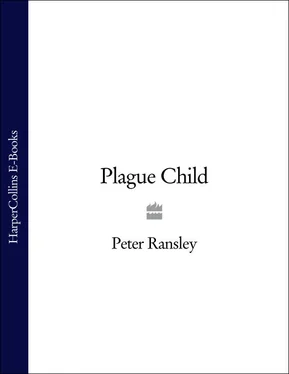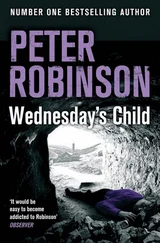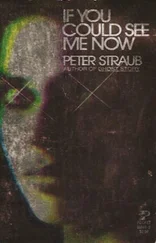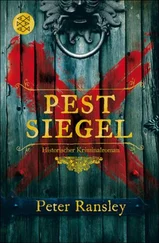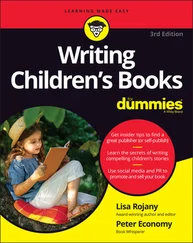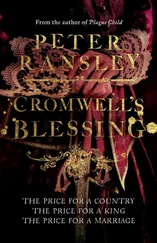‘Thank you, Anne.’
‘Miss Black. And don’t thank me.’ Her voice was cold and brusque. ‘I only did it to stop you making such a row. Crying out like a baby in the dark.’
‘You would cry here.’
‘Indeed I would not!’ she said, with such contempt ringing in her whispered voice my cheeks burned.
The thin band of light under the door began to waver and disappear, like the will o’ the wisps dancing away on the marsh. My panic rushed back.
‘Wait – the flint is damp!’
‘You haven’t tried it.’
I scraped my boot against the wall. ‘Not a spark! Please, An— Miss Black. Give me a light from your candle. Under the door.’
The light, the blessed light under the door grew stronger. Prone on the floor, I could see the flame, tallow dribbling, glimpse her thin delicate fingers. The flame wavered and almost went out. She gave a little cry and I could hear her scrambling up, waiting until the flame grew again.
‘I cannot. There is a draught – it will go out.’
‘Are you afraid?’ I mocked, then quickly, as I heard her step away: ‘I’m sorry, Miss Black. Miss Black – is there a key in the lock?’
There was a silence. I felt I could see her there in a long willow-green nightgown which I had glimpsed before, a shawl wrapped round her shoulders, those thin fingers cupped round the flickering flame.
I tried to make my voice sound as weak and humble as possible. ‘Miss Black . . . it would be easier if you were to open the door a little.’
She laughed, the contempt coming back into her voice again. ‘Do you think I’m such a fool, Monkey?’
Now the word had its old, hateful ring. I only just stopped myself from flinging myself at the door in anger and frustration. I clapped my hand over my mouth to stop myself from shouting.
I did not understand how I could love her one moment and hate her so much the next. My hopes for her were as much a fable as looking in a mirror and pretending I was handsome. Add to the feet and the red hair my nose, sharp and inquisitive as a bird’s beak, and you have a pretty full picture. Only my eyes, large and black as ink, drew me any kind of attention – that and my use of words which, from hating when they tried to drum rhetoric and writing into me, I had grown to love.
‘Open the door?’ she mocked. ‘You’ve run away before.’
‘I will not!’ I cried out with a sudden passion which must have taken her with as much surprise as it took me. ‘I want to run away, but I cannot run away from you!’
‘What rubbish! What nonsense! How can I trust you? No one can trust you! My father says you have the devil in you. I pray for you every day.’
‘Do you?’
‘Ssshh.’
‘What is it?’
‘Be quiet!’
I became as still as the stone flags under my feet. I could hear nothing but the shuffling of rats and, distantly, the wind rattling the panes and the crack and creak of wood; the house, like the ships in the docks, always seemed to talk to itself at night.
‘Do you?’ I whispered.
‘What?’
‘Pray for me.’
‘It is only Christian charity to do so,’ she said, quietly, earnestly. ‘To pray for a lost soul. To stop you from doing such things. Writing such things.’
Writing? She must mean a poem I had once dared to write to her. Had she read it? The thought, as unexpected as Mr Black’s praise, pricked my eyes with tears. The idea that she had taken any notice of me at all, except as a figure of fun and mockery, was a revelation.
‘Are you crying?’
‘No. Yes.’
‘Perhaps you are not quite lost, Monkey.’
Was there something softer in the mockery, or was it just my hope? There was no doubt about the sweetness of the next sound: the key turning in the lock. I sprang to open the door, but before I could do so the key turned back.
‘How can I open the door when you wrote such a poem to me?’
‘ Did you read it?’
‘Indeed I did not. My father said it was full of such vileness –’
‘Vileness?’ I said hotly. ‘You think it’s vile to write: “The windows of thy soule –”’
‘Stop it!’
‘“That when they gaze, see not me –”’
‘I will not listen!’
I heard her going. The yellow glow from her candle under the door wavered and went. In that moment I did not care. It was the first thing I had ever written that said truly what I felt, and the words kept coming from my lips as though they had a life of their own.
‘“I know the windows of thy soule
That when they gaze see not me
but some strange Satyre. Perchance
One idle day, they may see
These stumbling lines of poetry.
And, from these clumsy words know
I have no hope of your love, only
Hope that my love for thee
May make your eyes see me.”’
The words had calmed me. Now the sounds, the shuffling of the rats, the drip of water crept back. And with them another sound, but outside. The barest glimmer of yellow light had reappeared under the door.
‘Anne? Miss Black?’
‘They were not the words my father said.’
‘I will show you them – you should have read them.’
‘I cannot read, you know that!’ There was anger and humiliation in her voice.
I did not know. I had often seen her with her Bible, going to church, or opening one of the books of Lovelace’s poetry we printed.
‘I will teach you.’
‘You!’ Now there was no mistaking the total contempt in her voice. ‘You copied that poem. You did not write that stupid jingle.’
‘I did!’
‘Liar,’ she mocked.
My anger burst out uncontrollably and I hammered wildly on the door. ‘I did and it’s not stupid and I love you and always will – God knows why!’
During this she tried to silence me, but it was only when I stopped I heard Mr Black’s grumbling distant voice followed by Mrs Black’s high-pitched tones.
‘There is someone!’
I heard him say, ‘It’s Tom. Let him hammer away,’ then mutter something. Mrs Black’s voice grew louder, sharper and more urgent. ‘I can hear people talking.’
Whatever Mr Black said was drowned in bad-tempered thumps and creaking of boards.
I had heard nothing in Anne’s voice before but lightness and mockery. Now her whisper was panic-stricken. ‘Oh God! He must not find me here.’
‘Go! Go now,’ I urged.
Her bedroom was off a landing one floor above Mr and Mrs Black’s. She might just make it. As the light of her candle vanished I heard a door open upstairs and a moment later she returned.
‘It’s too late. He’s coming downstairs.’
‘Open the door.’
She gave a little moan of fear. ‘No.’
‘Open it!’
I heard the key turn and pulled open the door. She was in her green nightgown, as I had pictured it. The rest I had never imagined. That wonderful hair was locked up in some loathsome nightcap. All her haughtiness and mockery had vanished and been replaced by this shivering drab, face as pale as the candle she was holding. I thought, when I wrote that poem, as youth does think, that I knew everything about love. I looked into her eyes, wild, darting like a fearful animal, and realised that I knew nothing, except that I loved her even more.
She looked more frightened than ever at the sight of me, and backed up the steps. I snatched the key out of the lock.
‘Who’s that?’ Mr Black called out. ‘Who’s there?’
Anne retreated back. I pulled her to me, clapping a hand over her mouth, afraid she would cry out. I whispered into her ear. ‘Stay – when you hear a noise in the shop, run back to your room.’
I snuffed her candle out, stifling her little cry of fear, and crept up the steps.
‘Who’s that?’ Mr Black repeated.
Читать дальше
